Understand The Root Cause of Your Diarrhea and Stop it Fast

It seems hard for anyone who’s never suffered through an extended bout of diarrhea to talk about it without cracking one joke or another.
Yes, it can be a funny topic, but only when it’s not happening to you.
For the millions of people worldwide that it affects, it’s anything but funny.
It can be painful, annoying, and inconvenient.
The effects of diarrhea can range from minor aggravation to severe dehydration, sometimes leading to death. People of all ages, young and old, can get diarrhea. In the United States, the average adult has diarrhea approximately four times a year, while the average child experiences diarrhea twice a year.1,2
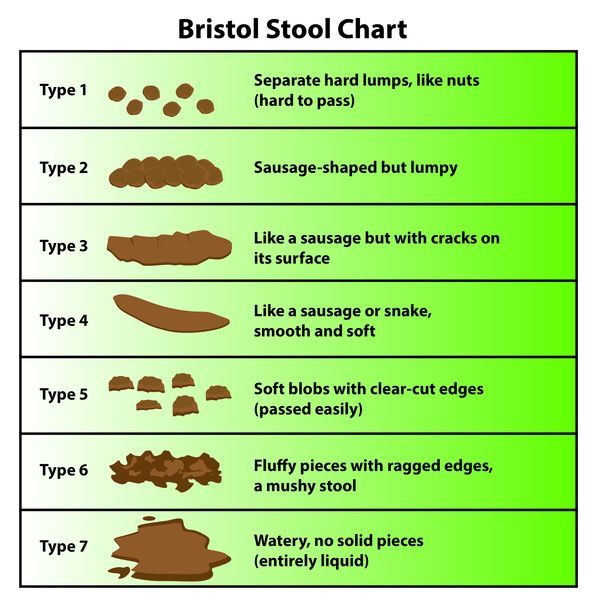
What Exactly is Diarrhea?
Diarrhea is a condition characterized by loose, watery stools and/or a frequent need to go to the bathroom.3
When you eat, the food you’ve eaten is sent to the gastrointestinal tract, where it’s broken down so that your body can absorb the nutrients and fluids it needs.
The leftover waste passes through your rectum and anus as stool (a bowel movement).
If your body doesn’t absorb the fluids from what you eat and drink, or if your digestive system produces extra fluids, stools will be loose and watery.4 Stool consistency is generally what most people think of in terms of diarrhea, but it can also be characterized by shape, volume, or weight. Loose stools contain more water, salts, and minerals and weigh more than solid stools.4
For some people, a stool weight greater than 200 grams a day suggests diarrhea, and for others it can be the passage of loose stools more frequently than usual.3,5 Not that you’re interested in weighing your fecal matter, but still a stat worth knowing. Moving on…
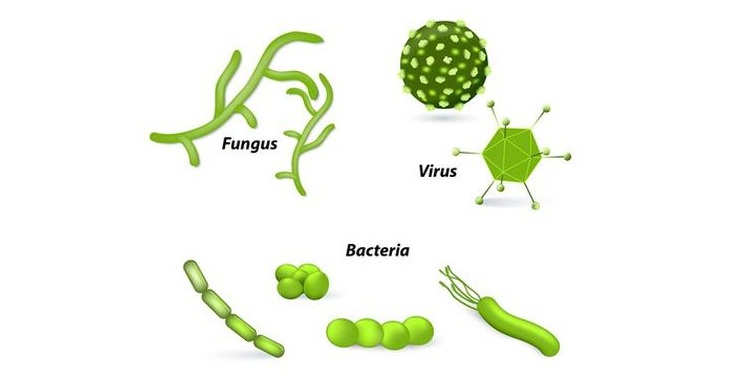
Types of Diarrhea
Diarrhea can be acute (short-term) or chronic (long-term). Diarrhea lasting less than two weeks is considered acute.6 Acute diarrhea usually lasts a few days and tends to go away on its own. It’s generally caused by an infectious agent (a viral, bacterial, or parasitic infection) or a non-infectious agent (diet or medication).7
Infectious diarrhea: Some pathogens can cause an inflammatory response in the gut where the epithelial lining is damaged either by a toxin produced by the organism or by an organism invading the mucosa.4 Bacterial infections are often acquired through fecal-oral transmission from water, food, pets, or person-to-person contact. In addition to diarrhea, symptoms may include pus, blood, and/or mucus in the stool, nausea, vomiting, abdominal pain, and fever (dysentery).8
Non-infectious diarrhea: There are organisms that affect the gastrointestinal tract and cause acute diarrhea. Non-infectious diarrhea can be caused by toxins (food poisoning), chronic disease (inflammatory bowel disease), or drugs (antibiotics). It can’t be spread from person to person.

Diarrhea lasting more than a month is considered chronic. Chronic diarrhea is usually painless and persistent without signs of bleeding, anemia, weight loss, or fatigue. Chronic diarrhea can be divided into three categories:7
Fatty diarrhea: This occurs when nutrient absorption is impaired from mucosal diseases of the small intestine (such as Celiac disease), short bowel syndrome (following multiple surgical resections), and small bowel bacterial overgrowth (mesenteric ischemia) or maldigestion from pancreatic insufficiency (chronic pancreatitis or cystic fibrosis). It’s characterized by excess gas and/or bloating, fatty feces (steatorrhea), or weight loss.8
Inflammatory diarrhea: Many microbial infections cause acute diarrhea, but others bring on inflammation (invasive pathogens) or malabsorption (giardiasis). These are characterized by blood and pus in the stool and an elevated fecal calprotectin level. Inflammatory diarrhea is often due to autoimmune disorders such as irritable bowel syndrome (IBS), which can manifest as intestinal diseases like ulcerative colitis or Crohn’s disease.
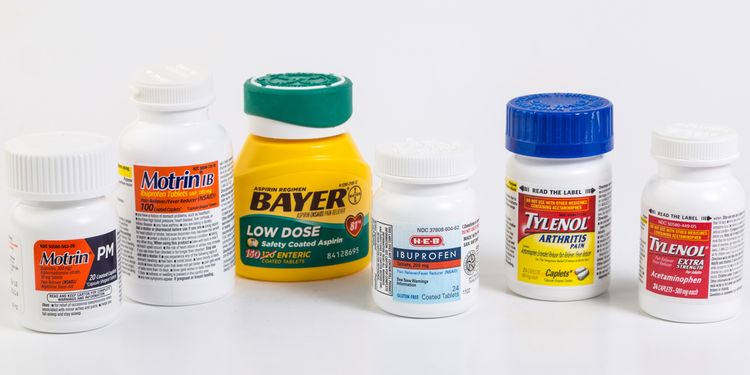
The watery diarrhea category may be subdivided into osmotic, secretory, and functional.
Osmotic diarrhea: This occurs when there’s a dysfunction in the ability of the intestine to reabsorb fluid in the gut lumen.9 This can result from carbohydrate malabsorption, such as lactose, sorbitol, and fructose intolerance. Medications such as laxatives, antibiotics, magnesium-containing antacids, NSAIDS, antihypertensives, and antiarrhythmics can have side effects leading to osmotic diarrhea.8
Secretory diarrhea: This results from elevated secretion or a decrease in absorption of fluids into the bowel. This can be due to laxatives, diuretics, caffeinated beverages, alcohol, infectious agents that alter the amount of fluid in the gut, and endocrine or autoimmune disorders (Addison’s disease, carcinoid tumors, or gastrinoma).8
Functional diarrhea: This stems from hypermotility of the gut. Disorders in motility that accelerate transit time could decrease absorption, resulting in diarrhea.8 Abnormally slow motility may result in bacterial overgrowth and thus diarrhea. Irritable bowel syndrome (IBS) is the most common cause of functional diarrhea. Endocrine disorders (hyperthyroidism or diabetes, for example) also increase motility.
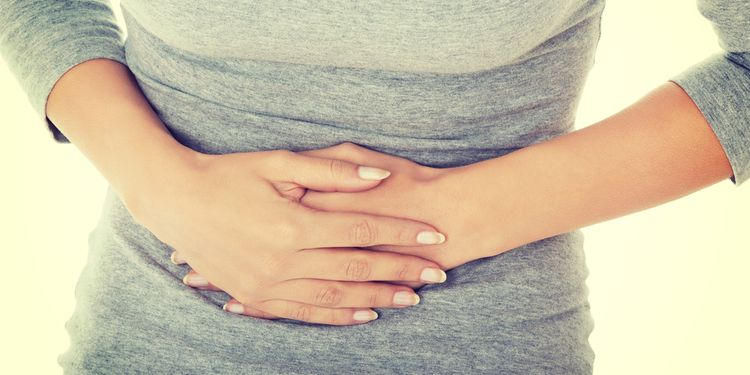
Symptoms of Diarrhea
While diarrhea itself is a symptom, it can be accompanied by other symptoms, including:10
- Stomach pain
- Nausea
- Abdominal cramps
- Bloating
- Frequent urge to evacuate the bowels
- Incontinence
Symptoms of a more serious problem include blood or pus in the stool, fever, signs of dehydration, persistent vomiting, chronic diarrhea, or weight loss.11

Root Causes of Diarrhea
Changes in bowel flora are believed to be contributing factors in many chronic diseases and their symptoms.
The gut microflora is involved in the immune system, synthesis of vitamins, digestion and nutrient absorption, and prevention of toxins and pathogens from entering the body.15
When our body and our gastrointestinal tract are in harmony, a healthy state of symbiosis results; when a state of disparity occurs, dysbiosis ensues. A bacterial imbalance can lead to harmful effects on the body and can influence susceptibility to chronic diseases of the GI tract.16
The following factors contribute to intestinal dysbiosis:
A standard American diet (SAD) that is low in fiber, rich in sugar, low in nutrients, and high in processed foods changes the ecosystem in our gut.
Overuse of medications such as anti-inflammatories, antibiotics, and steroids can disrupt gut flora.
Exposure to toxins such as mercury and mold can damage the epithelial cells or intestinal barrier function of the gut.
Chronic stress alters digestion and water intake to the intestines in a way that either slows or pushes food too quickly through the digestive tract.
Chronic low-grade infections from pathogens cause inflammation and mucosal damage to the colon.

Root Cause of Diarrhea: Diet
A diet high in sugar, grains, alcohol, starchy vegetables, and lactose (the sugar in milk) can lead to an overgrowth of candida. Candida is a yeast that resides in our gut as part of a healthy human microbiome.
Dr. Amy Myers describes candida as a fungus that lives in our mouth and intestines and whose job is to “aid with digestion and nutrient absorption.”17
A sugary and starchy diet can cause an increase in candida, disrupting the microbial balance in the gastrointestinal tract (dysbiosis). When candida is overproduced, Dr. Myers explains that “it breaks down the wall of the intestine and penetrates the bloodstream, releasing toxic byproducts into your body and causing leaky gut.”17
Dr. Ronald Hoffman states that candida overgrowth in the gut can “lead to a myriad of symptoms, and it’s more often than not the cause of irritable bowel syndrome (IBS).”18
Signs and symptoms of IBS include headaches, irritability, cognitive difficulties, bloating, gas, cramps, constipation, and diarrhea.
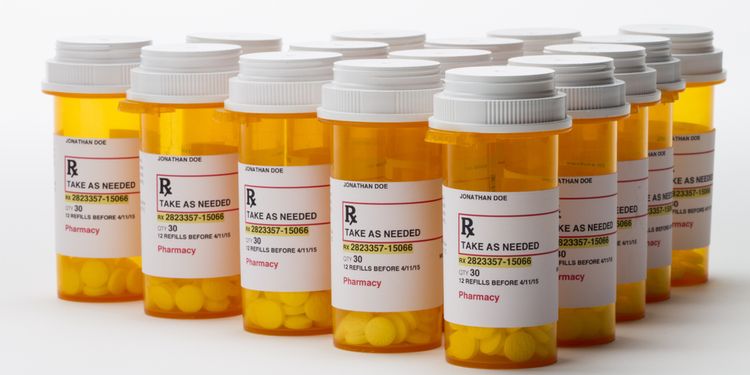
Root Cause of Diarrhea: Medications
Medications, mainly antibiotics, are the most common and significant cause of alterations in the normal microflora of the gut.19
Antimicrobial agents can’t differentiate between friendly and pathogenic bacteria. When you take these, it disrupts the balance of the intestinal ecosystem by killing off the bad bacteria in your gut while also destroying the good bacteria, leading to intestinal dysbiosis.
Broad-spectrum antibiotics, specifically cephalosporins, monobactams, and carbapenems (CMCs), fluoroquinolones, and clindamycin, are associated with overgrowth of already-present microorganisms such as fungi or Clostridium difficile.20
Overgrowth of these organisms has been recognized as a cause of antibiotic-associated diarrhea, also known as antibiotic-associated colitis.
Dr. Leo Galland explains that bacteria overgrowth or small intestinal bacterial overgrowth (SIBO) may cause maldigestion and malabsorption leading to diarrhea.20 He also states that dysbiosis may contribute to ulcerative colitis and Crohn’s disease.20
Other medications that can alter intestinal barrier function and affect intestinal microflora include non-steroidal anti-inflammatory drugs (NSAIDS) such as aspirin, ibuprofen, acetaminophen, and naproxen.
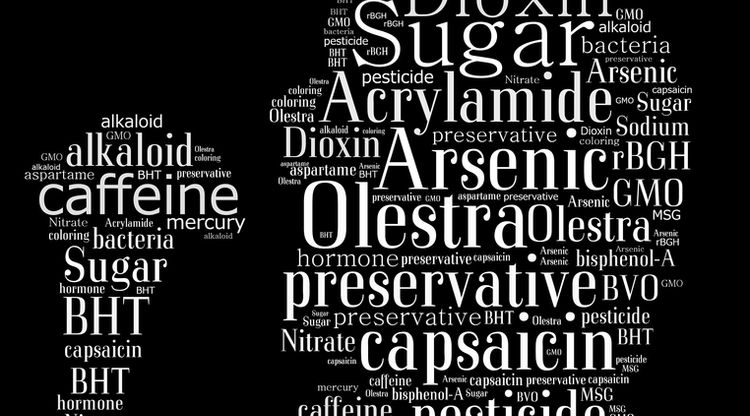
Root Cause of Diarrhea: Toxins
Dr. Mark Hyman reminds us that toxic substances are everywhere in our environment—the food we eat contains pesticides and chemical food additives (flavorings, preservatives, dyes, artificial sweeteners, and MSG).
The silver amalgam fillings in our mouth contain mercury, as do some vaccinations. Chlorine, bromine, and fluorine can be found in the water we drink, and the pharmaceutical drugs we take, such as steroids, birth control pills, NSAIDS, and antacids can be toxic.21
For some people, specific foods can be toxic (dairy, wheat, corn, soy, eggs, and peanuts).22
The cumulative toxic burden from daily exposure to chemicals has a profound effect on the balance of the gut microflora. Toxins can damage the cells of the intestinal tract and change the ecological balance, inducing dysbiosis contributing to a leaky gut.23
The repercussions of this imbalance result in undigested food molecules and foreign particles (bacteria, yeast, toxins, and waste) that your body normally doesn’t allow through to leak into your bloodstream.
Your body misidentifies the foreign particles as invaders and launches an attack on them. This can trigger an autoimmune response and cause inflammatory and allergic reactions that lead to nutritional deficiencies, headaches, fatigue, skin rashes, chronic diarrhea, and autoimmune diseases (Celiac disease, Crohn’s disease).16

Root Cause of Diarrhea: Stress
Stress can induce significant changes in the gut microflora. Stress can either stimulate or inhibit motility, resulting in diarrhea or constipation, says Dr. Leo Galland.16
Stress can be mental or emotional, but it can also be physical, such as surgery, injuries, infections, and excessive exercise.
Stress is a feeling created when we react to particular events. Events that provoke stress are called stressors; these could be environmental (noise, crowding), daily events (traffic, lost keys), life changes (marriage, divorce), work (long hours, high demand), chemicals (tobacco, drugs), or social situations (family and friends’ demands). Stress decreases the beneficial bacteria like Lactobacilli and Bifodobacteria and increases potentially pathogenic microorganisms such as E. coli.23
According to Robb Wolf, “Not only does stress alter the balance of bacteria, it also reduces the gut’s microbial diversity (how many different types of bacteria we have).”24 Stress also increases the production of stress hormones like cortisol and catecholamines like epinephrine and norepinephrine. Altering stress hormones increases gut permeability, causing inflammation of the intestinal lining.15
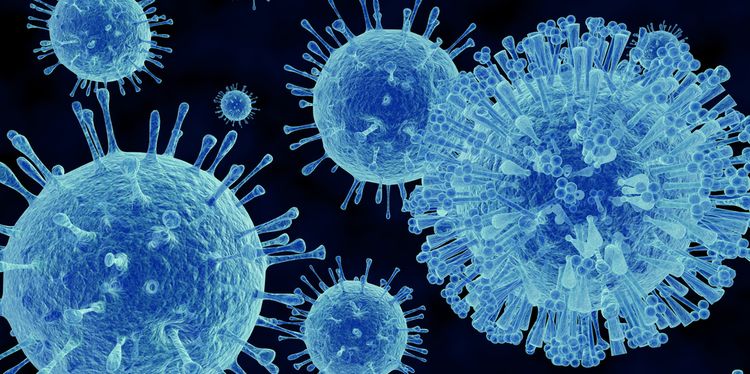
Root Cause of Diarrhea: Infections
Infectious diarrhea can be caused by many things, including Norwalk virus, rotavirus, Staphylococcus aureus, Clostridium perfringens, Vibrio cholerae, and enterotoxigenic Escherichia coli.7
Less commonly, protozoa such as Giardia or Cryptosporidium may be the causative factor.6
Common causes of infectious diarrhea are:4
Bacteria: Bacteria consumed through contaminated food or water can cause diarrhea. Common culprits include Campylobacter, Salmonella, Shigella, and Escherichia coli (E. coli).
Viruses: Many viruses cause diarrhea, including rotavirus, norovirus, cytomegalovirus, herpes simplex virus, and viral hepatitis.
Parasites: Parasites can enter the body through food or water and settle in the digestive system. Parasites that cause diarrhea include Giardia lamblia, Entamoeba histolytica, and Cryptosporidium.

Natural Relief from Diarrhea
Eating a whole, unprocessed foods diet as well as herbal and botanical supplements can help alleviate diarrhea. Increased exercise will promote regularity, but you should also engage in the following:
Rehydrate by increasing fluids to help prevent dehydration.
High-potassium foods and liquids can be lost through diarrhea; replace with leafy greens, avocado, fish, bananas, and almonds.
High-sodium foods and liquids can also be lost; replace with bone broths, soups, and Celtic sea salt.
Carob powder can help soothe irritated intestines.12
Glutamine and zinc help heal the gut.14 Bone broth, oysters, and mussels can be helpful.
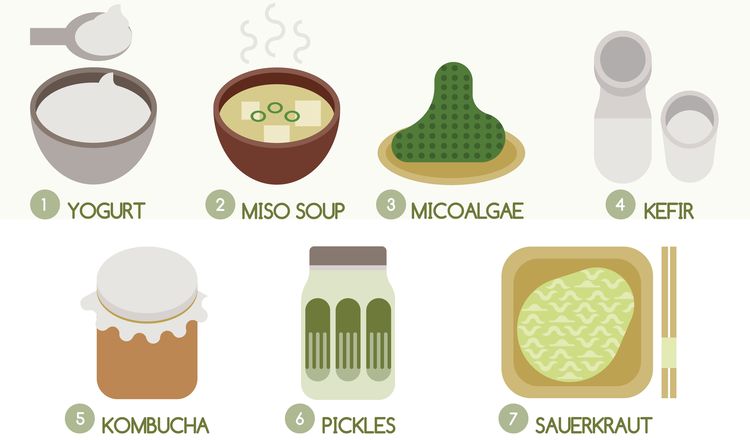
Blackberry root bark is an herb with astringent actions; it contains tannins, which can help slow the transit time of stool through the intestinal tract.12,13
Omega-3 fatty acids help cool gut inflammation.14
Pectin is a form of fiber found in fruits and some vegetables that may help slow the emptying of the gut and decrease urgency.13
Licorice is a demulcent herb that can help repair the gut.14
Probiotics assist in immune function by inhibiting harmful bacterial growth, promoting good digestion, maintaining proper pH, and increasing the good gut bacteria (such as Lactobacillus, Bifidobacterium, Eubacterium, and Propionibacterium species).13
As with anything new that you introduce into your system, go slowly. Going too fast can fool you into thinking that something isn’t working, when in reality it might if you pace yourself properly.
